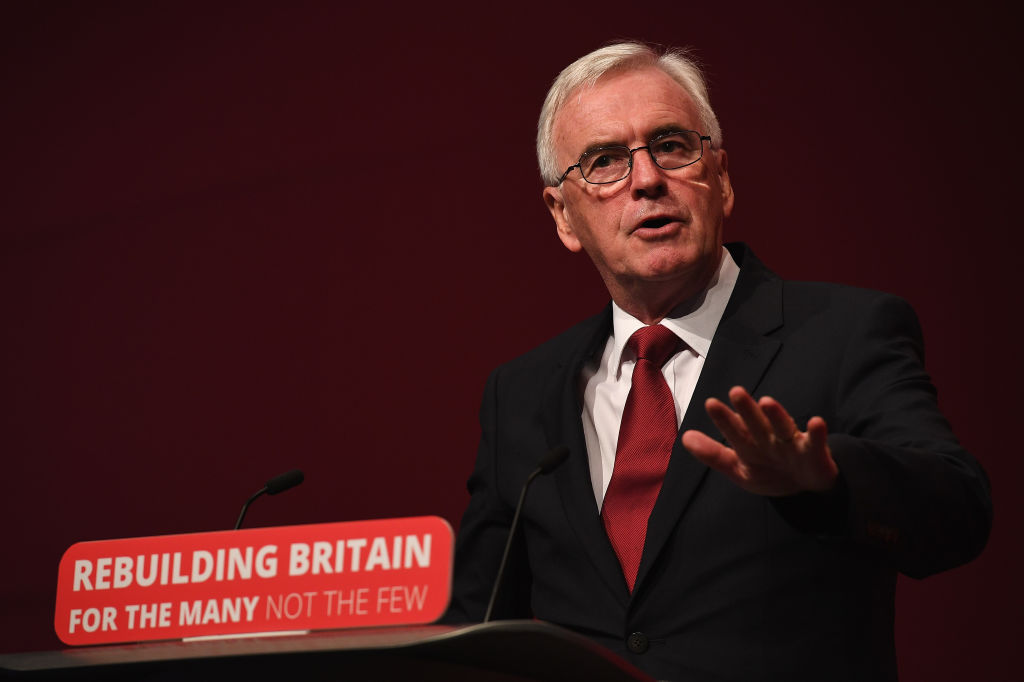John McDonnell started his Labour conference speech with a tribute to his ‘friend’ Jeremy Corbyn, praising the way in which the Labour leader had held his nerve while being attacked in the press. As united as the two men may be, the Shadow Chancellor certainly gave the impression today that the Conservatives would have much more reason to fear a McDonnell-led Labour. His speech contained a cogent analysis of where things were going wrong for the British economy, and a clear explanation of what Labour would do to fix those problems.
One of the things that Labour strategists have picked up from recent focus groups in the key seats – particularly towns – where the party needs to do better is a scepticism from voters about the party’s ability to deliver on its promises. Sections of McDonnell’s speech were clearly designed to respond to this, including where he said that: ‘We are planned, we are ready, we are prepared not just to win another election campaign, but to implement that programme when we win that election campaign.’
He reiterated a number of crowd-pleasers from his Brighton conference speech last year, including the renationalisation of a number of utilities, promising as the crowd cheered lustily that this would also result in higher standards from these services. Using water as an example, he had a good line of argument for pursuing this policy, beyond what he claimed to be its popularity: ‘We can’t afford not to rake it back into public ownership.’
He also announced a smart policy that doesn’t require Labour to be in government and that fits well with its bid to be a party that does things as well as campaigns. Labour will bring together big organisations that have large shareholdings and launch a tax campaign that demands companies will pay their fair share. Whether all such organisations, including the Church of England, will be keen to do that is another matter.
This was the most confident speech I’ve seen from a Labour Shadow Chancellor since the party went into Opposition. McDonnell doesn’t feel the need to apologise or offer a range of policies that have been toned down for the electorate. Relatively early on, he praised Clause IV of the party’s constitution, which was revised by Tony Blair and which committed the party to nationalised industries. He said its words were ‘as relevant today as they were back then’. He also criticised previous Shadow Chancellors for talking up the mess they would inherit in government as an explanation for why they couldn’t be more radical. ‘This Shadow Chancellor is different,’ he said. ‘The greater the mess we inherit, the more radical we have to be. The greater the need for change, the greater the opportunity we have to make that change.’
Of course, Jeremy Corbyn shares the unashamed approach to socialism. But what he has so far failed to show is the clarity or argument that McDonnell displayed today. That’s not to say that those in the hall seemed to be longing for their current leader to be replaced. Indeed, while there were a number of standing ovations, and while the members around me continually murmured ‘Yes!’, ‘brilliant’ and ‘absolutely’ as McDonnell spoke, they didn’t have the same feverish affection that they display for Corbyn, even if he may not be the best person to get their party into government.







Comments